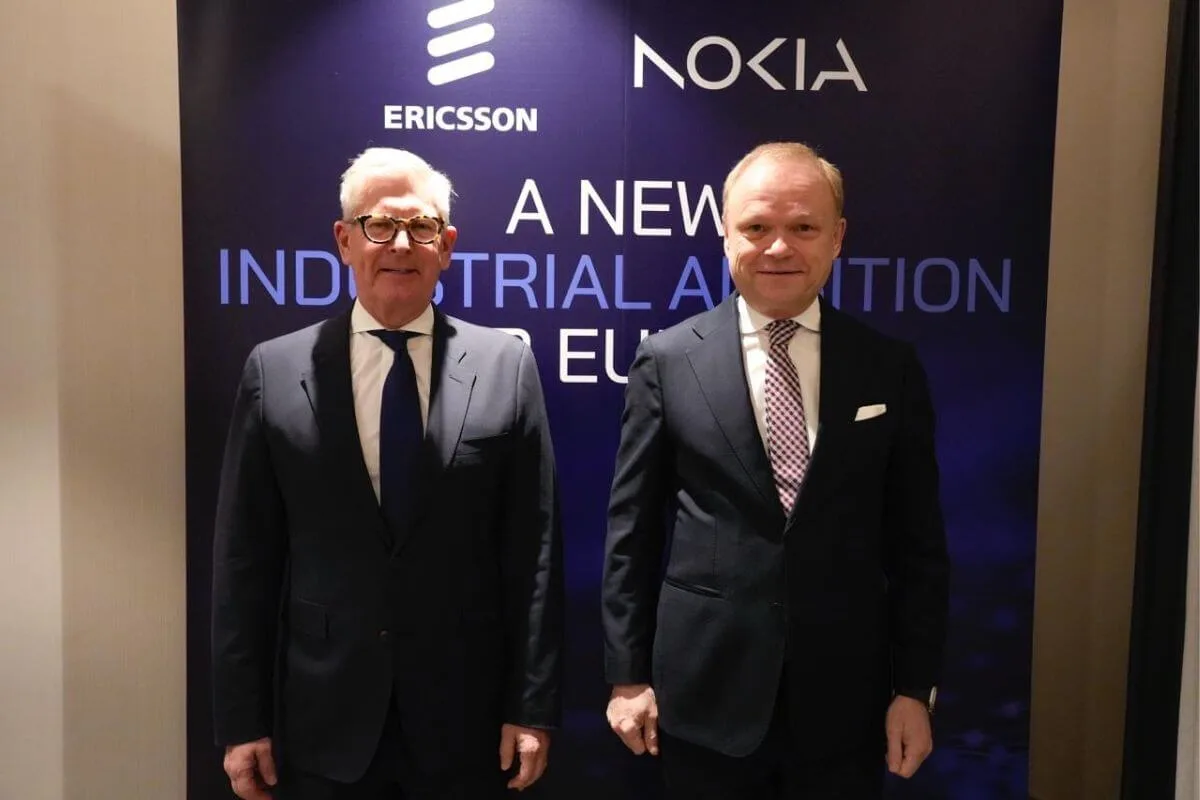
European technology companies Nokia and Ericsson, supported by ASML and SAP, hosted the "New Industrial Ambition for Europe Summit" in Brussels today, January 16. The event brought together EU leaders to discuss ways to enhance Europe's competitiveness in the global digital economy. Senior political figures—including the European Commission Executive Vice President for Tech Sovereignty, Poland's Deputy Minister of Digital Affairs, and a former Italian Prime Minister—joined industry CEOs who highlighted the urgent need for reforms to secure Europe's technological and economic future.
First Read: European Union Says Its AI Investment Is Only 4 Percent Compared to US
Nokia in a joint statement, said the summit aims to catalyse momentum across the EU to implement the necessary actions for advancing European digitalisation. This includes fostering a more supportive regulatory environment and enhancing the region's attractiveness to investors.
Tech Sector at a Crossroads
Europe's technology sector faces significant challenges, with a EUR 450 billion R&D funding gap compared to the US and China. The Industry leaders pointed out that US firms invest 60 percent more in R&D, resulting in a 20 percent annual productivity advantage. Europe risks falling further behind unless urgent measures are implemented, CEOs warned.
The participating CEOs emphasised the critical role of connectivity, including 5G and fiber networks, in enabling innovation, economic resilience, and defense digitalisation. Leaders called for full implementation of the 5G Security Toolbox and reforms to enhance market consolidation and investment incentives.
"The 5G Security Toolbox is vital and needs to be extended to all telecom technologies with its implementation needing to be completed all member states," the official release said.
Also Read: EU Selects Seven Sites for First AI Factories, Marking EUR 1.5 Billion Investment
Leadership Perspectives
Pekka Lundmark, President and Chief Executive Officer, Nokia, says: "European competitiveness already has one foot in the morgue. Our real GDP is 30 percent less than the US's, the EU's share of the Fortune Global 500 is still falling and our digital future looks less certain than ever. The good news is that we can still turn this tanker around. Europe must create an environment in which businesses want to invest, especially on technologies such as AI, cloud and advanced connectivity. This cannot be a decade-long endeavour. Europe must act right now on issues like the 5G Toolbox and telco mergers. If Europe gets this right, it's a massive opportunity. Draghi and Letta already provided the framework. So, let's act."
Borje Ekholm, President and CEO, Ericsson, added: "The unique coming together of four technology leaders highlights the urgency facing Europe's economy to decision makers in Member States. Companies like Ericsson already invest disproportionally more in R&D in Europe. If other regions continue to race ahead this model cannot survive. Those regions are embracing opportunity through investment, policy, and regulatory support. Europe is not. Yet the solution is well known. The EU must implement the Draghi and Letta Report recommendations to enable the technology sector to play our part in delivering future European prosperity."
Second Read: Europe’s 5G Adoption Expected to Surpass 4G by 2026: GSMA Report
Call for Policy and Regulatory Reforms
Leaders at the summit urged Europe to act decisively by implementing the recommendations from the Draghi and Letta Reports, focusing on fostering innovation, incentivizing investment, and enabling scale while reducing market fragmentation.
Strengthening R&D funding and improving access to capital are essential to closing Europe's EUR 450 billion technology gap. Policymakers must simplify regulations, enforce a unified digital single market, and fully implement the 5G Security Toolbox to ensure secure and trusted connectivity, according to the CEOs.
Reforms to competition and M&A guidelines are needed to support market consolidation, alongside setting clear 5G deployment targets and trading spectrum fees for rollout acceleration. Additionally, the leaders urged that connectivity efforts should align with sustainability goals, and counterproductive proposals, such as the draft on Standard Essential Patents, should be withdrawn to promote fair business practices.
Also Read: AI Can Be a Game-Changer for Europe’s Economic Growth: Report
The summit marks the first time that Nokia and Ericsson have come together to organise and drive such an initiative.















